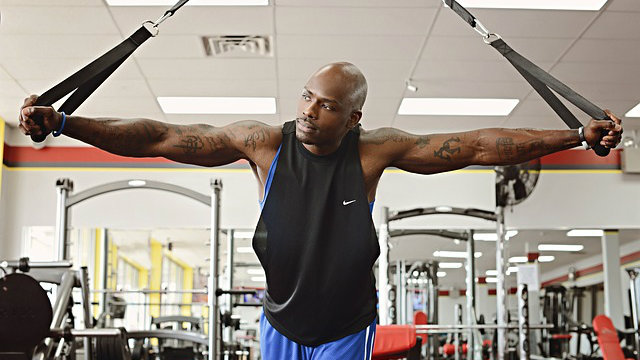 Reading Time: 6 minutes
Reading Time: 6 minutesPerhaps the only places you go with regularity that are charged with the sole purpose of addressing your well being are your church and the gym. In theory, a church is a temple of wellness offering community-based unity in thought and faith. And theoretically, a gym is a wellness temple of a different sorts — tasked with promoting a culture of holistic health and fitness.
Yet another place you go to address your health with less frequency is the doctor. Some physicians and chiropractors get a bad rap for using snake-oil-type gimmicks in their formulaic suggestions that a certain number of treatments will cure whatever ails you. Instead of simply treating your affliction, some exhort that simply signing on the dotted line will unlock a magic prescription that meets your needs.
Applying such hard-pressure tactics runs counter to building trust and credibility. To be successful in the long run, churches, gyms, and doctors all must provide a culture steeped in authenticity and empathy, not salesmanship. Still, when people are in a place of vulnerability, like wanting to improve their health, they can become easy targets.
While your doctor and your church hopefully get it right, frequently your gym, fitness program, or trainer gets it wrong.
All too often, fad-centric gimmicks and short-term profit motives dominate the fitness industry. A common example occurs when big box gyms and specialized studios lock you into contracts that don’t meet your needs or that you don’t intend on using. Shame on them.
When you go to the doctor the only thing that should matter is the betterment of your health. The same narrative should apply to fitness. You should be treated as a patient, not a prospect.
Fitness businesses have an ethical responsibility to put wellness first and to put your needs above theirs. As you shop for your next gym, trainer, or program, here’s how to avoid being sold a bill of goods and how to stand up for your rights as a customer to ensure you get what you need and deserve.
1. Remember You Have Options and Weigh Them
Never forget that as a fitness customer you’re holding all the cards. No gym, trainer, or fitness program is so unique or special that there should be some overt and unnecessary expectation of your immediate sign-up.
Pushing for urgency or a lengthy commitment meets the gym’s needs, but not necessarily yours. Before signing up, do your due diligence to find the program that best meets your needs, addresses your goals, and matches the culture that resonates with you.
2. Negotiate
There’s an old adage that says, “Everything is negotiable.” If you have a pushy salesperson at your fitness center, push back. That means if your gym is playing a sales game, you can either choose to play that game or not. If you do play the game, remember that you still have options.
Common sales tactics are to present two options for you to choose from — as in, do you want to commit to option A or B? But if those options don’t meet your needs, it’s your right as a potential customer to suggest an alternative. If they want a year contract, tell them you want six months and see how they respond. If you travel frequently, suggest a pay-as-you-go option. If you have potential life changes on the horizon, suggest an opt-out clause. And of course, get any and all of this in writing.

3. Make Sure You Are Heard
Like a lot of cookie-cutter business platforms, many gyms conduct extensive sales training and role-playing of scripts in an effort to get their employees proficient in an aggressive sales-minded strategy. As a business practice, this makes sense, as many coaches and trainers have a background in coaching and training, not sales or marketing.
But such sales scripts are created with the needs of the business in mind, not yours. A good litmus test of whether your needs are being met is to assess whether the gym representative is doing most of the talking or you are. A good salesperson mostly listens, and this is especially true when it comes to your health and wellness. How can they know what your needs are if they are not encouraging you to talk and share?
You should sign on the dotted line if and only if you have been heard and your gym has successfully outlined your needs and how they can address them.
4. Ask for Their Commitment
A potential client once asked me to describe my definition of “success” in fitness. What a phenomenal question. If you’re considering joining a gym or hiring a trainer, you should ask the trainers and owners to answer that same question. Their answer will inform your decision to sign up.
If a church pastor didn’t convincingly breathe, live, and emanate faith, you’d likely give pause before joining a congregation. We should also expect a similar commitment, both personally and professionally, from those in the fitness business.
Before a trainer or gym gets you to commit to a membership or a program, make sure you have asked for their commitment to your fitness and wellness. That means asking how they are going to be an advocate on your journey and how they employ a successful fitness regimen in their own lives.
In addition to their definition of fitness, look for their passion, as opposed to someone merely going through the motions or trying to make a quick buck off you.

5. Commit Only if You’re Committed
While it’s considered a poor selling tactic, I typically gave people a free initial training session and asked people to go home and think about their commitment before signing up. I did this for one simple reason — it’s not good for you and it’s ultimately not good for gyms or trainers to have a customer who is not committed.
In any wellness business from medicine to fitness, having the right customer matters. People only get well, get fit, lose weight, or learn if they want to. Before a gym asks for your commitment, make sure you’ve first sincerely asked yourself if you’re ready.
Your Health Is Your Most Valuable Possession
Gyms have a right to be successful and profitable businesses. After all, it’s difficult to meet the needs of customers if you can’t keep the lights on. But that’s different than scamming your customers.
Fitness is a unique industry with an ethical imperative of meeting your needs in wellness first. Health is your most valuable possession, and when it comes to the business of fitness, you as the customer have the right to make sure you are treated like a patient, not a prospect.










